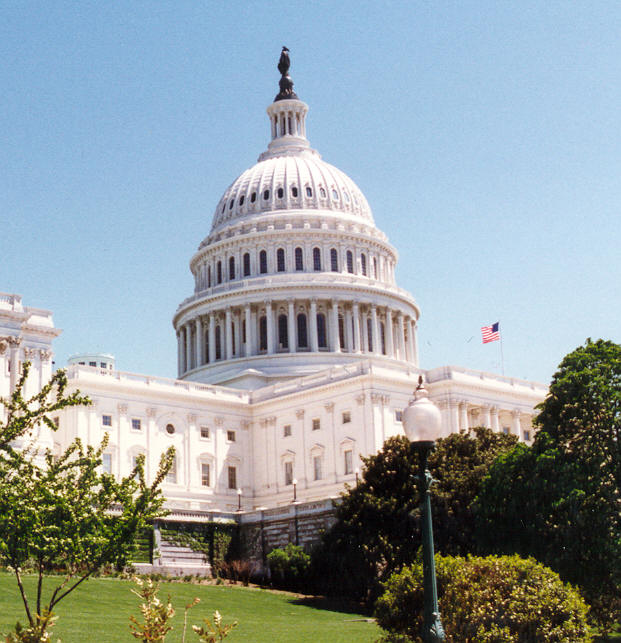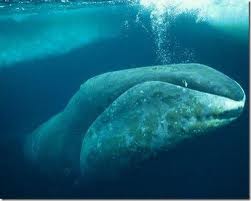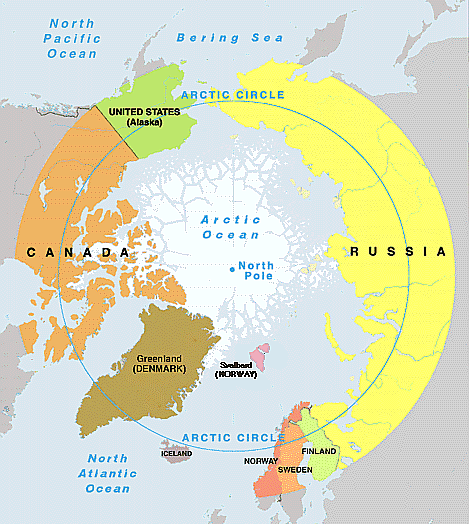|
|
|
|
|
|
|
|
 Hydrographic Services Review Panel, September 16-18, 2015| Emerging Arctic Priorities, September 17, 2015. The HSRP is a federal advisory committee established to advise the NOAA Administrator about its navigation (i.e. charts and ENCs), physical oceanographic (i.e. tides & water levels), geospatial, positioning, and shoreline programs, products, and services. Lawson Brigham will report out on recommendations to NOAA from his working group on Emerging Arctic Priorities to the Hydrographic Services Review Panel (HSRP), Federal Advisory Committee. This will occur at 1:30pm, Thursday, September 17, the Doubletree Hotel, 8727 Colesville Road, in Silver Spring, MD. Hydrographic Services Review Panel, September 16-18, 2015| Emerging Arctic Priorities, September 17, 2015. The HSRP is a federal advisory committee established to advise the NOAA Administrator about its navigation (i.e. charts and ENCs), physical oceanographic (i.e. tides & water levels), geospatial, positioning, and shoreline programs, products, and services. Lawson Brigham will report out on recommendations to NOAA from his working group on Emerging Arctic Priorities to the Hydrographic Services Review Panel (HSRP), Federal Advisory Committee. This will occur at 1:30pm, Thursday, September 17, the Doubletree Hotel, 8727 Colesville Road, in Silver Spring, MD.
LOCATIONS and TIMES:
September 17, 9am Doubletree Hotel Silver Spring, 8727 Colesville Rd., Silver Spring, MD
September 18, 8am Doubletree Hotel Silver Spring, 8727 Colesville Rd., Silver Spring, MD
Today's Congressional Action:
The House and Senate are in session and not expected to consider Arctic legislation.
|
Psychiatrist Urges Cooperation Among Nunavut Agencies. Mental health expert Dr. Alison Crawford, in evidence she gave Sept. 16 at this month's Nunavut coroner's inquest, called for more cooperation among Government of Nunavut agencies to combat the territory's disturbingly high rate of suicide. "The scope for understanding suicide goes beyond the scope of medical terms," said Crawford, who's an assistant professor of psychiatry at the University of Toronto. Crawford believes more conversation should occur between health workers and the rest of the community to identify and treat the warning signs that lead to suicidal behavior. Nunatsiaq Online
 Decades-Old Projectile Discovered in Whale Caught Off Alaska's Arctic Coast. The first bowhead whale harvested this season by Inupiat hunters in Kaktovik yielded a big surprise -- broken-down pieces of an old projectile left over from the days of commercial whaling, buried in the whale's tail. A whaling crew captained by Freddie Aishanna got the bowhead, which measured slightly over 42 feet, and brought it to the beach on Sunday, said Flora Rexford, a teacher in the eastern North Slope village. Alaska Dispatch News Decades-Old Projectile Discovered in Whale Caught Off Alaska's Arctic Coast. The first bowhead whale harvested this season by Inupiat hunters in Kaktovik yielded a big surprise -- broken-down pieces of an old projectile left over from the days of commercial whaling, buried in the whale's tail. A whaling crew captained by Freddie Aishanna got the bowhead, which measured slightly over 42 feet, and brought it to the beach on Sunday, said Flora Rexford, a teacher in the eastern North Slope village. Alaska Dispatch News
Norwegian Politicians Propose Housing Refugees on Remote Arctic Archipelago. Svalbard, a far-flung archipelago ruled over by King Valemon King Harald V of Norway, is on top of the world. Literally. Located north of the Arctic Circle halfway between the Norwegian mainland and the North Pole, Svalbard is a harsh, unforgiving place dominated by vast, glacial nothingness. In fact, 60 percent of the mountainous archipelago is covered with glaciers while large swaths of Svalbard's frozen terrain are protected as national parks or designated nature reserves. Human habitation is limited to the archipelago's largest island, Spitsbergen, where there are several settlements including a small handful of mining outposts and the administrative center of Longyearbyen, where roughly 2,000 residents enjoy paved roads and access to a hospital, schools, recreation facilities, library and small shopping district. Under one proposal recently pitched by Norway's Green Party, Spitsbergen could see a dramatic population bump as the new home of hundreds, potentially thousands of Syrian refugees. Mother Nature Network
 Arctic Experts Warn of Urgent Need for Collaboration. New attention on the Arctic has cast a light on some of the difficulties facing the government and scientific researchers: communication and collaboration. And they're running short on time. Arctic Experts Warn of Urgent Need for Collaboration. New attention on the Arctic has cast a light on some of the difficulties facing the government and scientific researchers: communication and collaboration. And they're running short on time.
That was the message from several speakers at a forum on Arctic issues held in Washington, D.C., Wednesday. Sharing information among the many programs scattered across the federal government can be hit-or-miss. And the issue has dire consequences, researchers said Wednesday. Researchers, policymakers and politicians agreed that the pace of climate change in the Arctic will be anything but glacial and will likely result in major, cascading impacts across the world. Alaska Dispatch News
Why Climate Change Means More Arctic Mosquitoes. Global warming is already underway, taking a toll on the Arctic sea ice and various wildlife populations such as the polar bears, but mosquitoes are thriving. As temperatures warm in the Arctic, mosquitoes are not only able to emerge earlier from their ponds, but also to grow faster and survive even longer - and in higher numbers, according to a new study. The Christian Science Monitor
Melting Arctic Sea Ice Accelerates Methane Emissions. Methane emissions from Arctic tundra increase when sea ice melts, according to a new study from Lund University in Sweden. This connection has been suspected before, but has lacked strong evidence until now. "Changes in the Arctic Ocean can affect ecosystems located far away on land," says Dr. Frans-Jan Parmentier, the study's lead author and researcher at the Department of Physical Geography and Ecosystem Science, Lund University. Phy.Org
|
|
Legislative Action
No Arctic legislation was formally considered yesterday.
|
|
Future Events
Eighth Polar Law Symposium Alaska 2015, September 23-26, 2015 (Fairbanks and Anchorage, Alaska , USA). The Eighth Polar Law Symposium is co-hosted by Alaska Pacific University (APU), the University of Alaska Fairbanks, the University of Alaska Anchorage (through its Justice Center and its Institute of Social and Economic Research), the University of Washington School of Law, and Vermont Law School, in cooperation with the Arctic Law Section of the Alaska Bar Association. The symposium will be held on both campuses of the University of Alaska. The 2015 theme is: The Science, Scholarship, and Practice of Polar Law: Strengthening Arctic Peoples and Places.
2015 Arctic Energy Summit, September 28-30, 2015 (Fairbanks, Alaska, USA). The Institute of the North's 2015 Arctic Energy Summit builds on our legacy efforts to address energy as a fundamental element of the sustainable development of the Arctic as a lasting frontier.Central to this concept is a focus on providing pathways for affordable energy development in the Arctic and for Arctic communities.
The Arctic Circle is the largest global gathering on the Arctic. It is attended by heads of state and governments, ministers, members of parliament, officials, experts, scientists, entrepreneurs, business leaders, indigenous representatives, environmentalists, students, activists, and others from the growing international community of partners and participants interested in the future of the Arctic. The Arctic Circle highlights issues and concerns, programs, policies and projects; it provides platforms for dynamic dialogue and constructive cooperation. While the plenary sessions are the responsibility of the Arctic Circle, the breakout sessions are organized by various participating partners in their own name and with full authority over the agenda and the choice of speakers.
2015 Arctic Science Conference, October 1-3, 2015 (Anchorage, Alaska, USA). The conference theme is "Healthy Estuaries: Sustainability and Resilience." Conference topics include traditional scientific disciplines, science education, arctic social sciences, biomedical research, and artistic interpretation of the evolving North. Abstract submissions are now being accepted. The deadline is August 1, 2015.
The Polar Oceans and Global Climate Change, November 3-6, 2015 (La Jolla, California USA). The American Polar Society will host this Symposium at Scripps Institution of Oceanography. A flyer with a partial list of presenters is available on the Society's website (americanpolar.org) and from the Society's Membership Chairman by email.
Forum for Arctic Modeling and Observational Synthesis Meeting, November 3-6, 2015 (Cape Cod, MA, USA). On November 3rd, the 2015 School for young scientists will consider "Regional Oceanography of the Arctic marginal seas" with lectures covering major features of atmospheric, sea ice and oceanographic regimes of the: Bering, Chukchi, Beaufort, East-Siberian, Laptev Sea, Kara, Barents and Nordic seas. On November 4-6, the meeting portion will summarize project accomplishments for the last 3 years of activities and will focus on the formulation of scientific questions and directions for FAMOS future research (2016-2019) to: (a) improve Arctic modeling, employing very high resolution models; (b) develop and test new arctic monitoring/observing systems and (c) improve predictions of Arctic environmental parameters with reduced uncertainties.
Due North: Next Generation Arctic Research & Leadership, November 5-8, 2015 (Calgary, Alberta, Canada). The Association of Canadian Universities for Northern Studies (ACUNS) will convene an interdisciplinary conference of early career scientists working on Arctic issues. Topics will include: Arctic Communities, Arctic Sustainable Development, Arctic Wildlife, Ecosystem and Biodiversity, Arctic Food Security, Arctic Landscapes, Climate Change and Adaptation, Disaster Risk Management, Policy, Politics and Leadership, Arctic Environment (Data and Techniques), Arctic Resources, and Future of Arctic.
Arctic Observing Open Science Meeting, November 17-19, 2015 (Seattle, Washington). The Arctic Observing Open Science Meeting will be 2.5 days and held at the Hyatt at Olive 8 in Seattle, Washington. The conference will bring together individuals and teams involved in the collection, processing, analysis, and use of observations in the Arctic - from academia, agencies, industry, and other organizations. The meeting will be convened as a combination of plenary talks, parallel science sessions, and a poster session. The agenda and registration information will be forthcoming.
In the Spirit of the Rovaniemi Process 2015, November 24-26, 2015 (Rovaniemi, Lapland, Finland).When the Arctic Environmental Protection Strategy, the so-called Rovaniemi Process, was adopted in 1991, it aimed at overcoming divisions and turning the zone of Cold War military tensions into a region of peace and co-operation. In this joint effort focusing on the protection of environment, and later, sustainable development, the Arctic states supported by indigenous organizations laid grounds for institutionalized collaboration and the emergence of Arctic regional identity. The second international conference will bring together decision-makers, scholars, artists, designers and students to address these questions and discuss the Arctic in global, regional and local perspectives.
Arctic Encounter Paris (AEP 2015), December 11-12, 2015 (Paris, France) (During the UN Convention on Climate Change - COP21). The Arctic Encounter Paris will take place at the French Senate at Luxembourg Palace and the French Military College, École Militaire, in Paris, France, on the final days of the monumental United Nations Convention on Climate Change (COP21) where thousands of global citizens and government delegates will be gathered to deliberate the world's response to our changing planet in Paris. The AEP is the only Arctic policy side event currently planned to take place during the UN Convention. A reception will take place following the closing panel.
3rd Annual Arctic Encounter Symposium (AES 2016), January 15-16, 2016 (Seattle, WA, USA). Building upon the preceding Arctic Encounter event in Paris, the third annual Arctic Encounter Symposium (AES) in Seattle, Washington will convene policymakers, industry leaders, and leading experts to confront the leading issues in Arctic policy, innovation, and development. As the largest annual Arctic policy event in the United States, the AES mission is to raise awareness, engage challenges, and develop solutions for the future of a region and a people. The two-day program includes two keynote luncheons, expert plenary sessions, break out sessions, a networking cocktail reception and seated dinner at the Museum of History and Industry on South Lake Union. A closing reception will take place at the conclusion of the program. The official host of the third annual AES is the University of Washington School of Law.
|
|

  
4350 N. Fairfax Drive, Suite 510
Arlington, VA 22203, USA
External links in this publication, and on the USARC's World Wide Web site ( www.arctic.gov) do not constitute endorsement by the US Arctic Research Commission of external Web sites or the information, products or services contained therein. For other than authorized activities, the USARC does not exercise any editorial control over the information you may find at these locations. These links are provided consistent with the stated purpose of this newsletter and the USARC Web site.
|
|
|
|
|
|
|
|
|